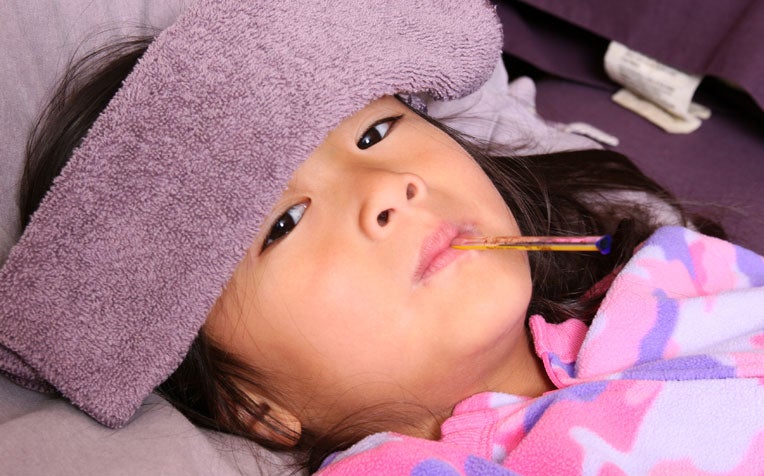1. Encephalitis causes brain inflammation; symptoms include fever, drowsiness, behavior changes, and potential physical impairments.
2. Most cases stem from immune system malfunction rather than brain infections; early treatment crucial.
3. Warning signs include excessive drowsiness, personality changes, neck stiffness; multidisciplinary treatment approach needed for recovery.

Encephalitis can be due to an infection or a misdirected immune system.
Encephalitis and meningitis are serious childhood illnesses, which may result in physical impairment and learning disabilities. At KK Women’s and Children’s Hospital (KKH), 173 children were treated for these conditions from 2008 to 2012.
Symptoms of encephalitis
In encephalitis, there is inflammation in the brain tissues. The main symptoms are fever and encephalopathy, in which children become more sleepy or drowsy than usual. This can sometimes be subtle and noticed only when there is a change in behaviour. Some children become overly-friendly or disinhibited – behaving in socially or culturally inappropriate ways. Others may swing rapidly between euphoria and sudden bouts of sadness and crying. Parents may feel their child has become a different person. Young infants and babies may only show excessive irritability or have a high-pitched incessant cry.
Other symptoms of brain inflammation are headache, seizures, and loss of ability in some or all parts of the limbs and body. This can take the form of paralysis of a limb or being unable to speak (focal neurological deficits).
In meningitis, when the meninges or coverings of the brain become inflamed, there are additional symptoms of neck stiffness and eye pain or discomfort when perceiving bright objects.
Causes of encephalitis
Contrary to popular belief, brain infections are the cause of encephalitis in only 30 to 40 per cent of patients. A large number of affected children have an immune encephalitis, or encephalitis caused by a malfunctioning or misdirected immune system.
Immune encephalitis can be caused by a para-infectious disorder, where the immune system unintentionally causes inflammation in the brain or meninges while fighting a minor infection occurring elsewhere in the body. The minor infection is usually due to a common virus or bacteria causing a common cold and runny nose, or diarrhoea and vomiting.
Less often, children can have an auto-immune encephalitis, in which the body’s own immune system attacks the brain in a concerted and directed manner. Immune encephalitis is the result of a powerful but confused immune system, rather than a weak or defective immune system.
Children with encephalitis can become sick rapidly and need intensive care treatment. At KKH, children get early treatment with high-dose antibiotics and antiviral medication after being stabilised. Those who have seizures are given anti-epileptic medication.
Samples drawn from blood, cerebrospinal fluid (obtained through a lumbar puncture procedure), and nose and throat secretions are examined for infectious pathogens and inflammation in the brain and meninges. Brain imaging scans – either a CT (computed tomography) or MRI (magnetic resonance imaging) – may show characteristic patterns that suggest a particular type of encephalitis.
Children with no complications improve by the end of the first week of illness and usually have no long-term after-effects. Those with poor recovery or persistent symptoms despite treatment have a more serious illness. Occasionally, some children with severe illness may show an initial improvement only to have a worsening of symptoms in the second week.
In children severely ill with encephalitis, a second tier of investigations is performed to evaluate the immune system and look for rare and unusual infections. A repeat lumbar puncture for cerebrospinal fluid analysis and a second MRI brain scan are usually necessary. If the need arises, specialised tests for antibodies directed against the brain and nerve cells can be done.
Treatment for encephalitis
Treatments to control the misdirected immune system – high dose steroids, immunoglobulins, plasma exchange or cyclophosphamide – need to be administered early, as late treatment may result in brain injury. In most children, these treatments are initiated based on clinical assessments alone, before the results of the immune system-related investigations become available.
Children with complicated encephalitis often need long-term immunotherapy and neuro-rehabilitation. At KKH, they are cared for by a multi-disciplinary team of doctors, nurses and pharmacists from specialties including neurology, infectious disease, rheumatology, diagnostic imaging and intensive care.
The hospital also has a comprehensive neuro-rehabilitation programme with a team of occupational therapists, physiotherapists, speech-language pathologists and neuropsychologists to help children and their parents work through the physical and cognitive disabilities that result from the illness.
A team of researchers at KKH are also studying ways to differentiate infections from immune encephalitis at an early stage, so that the appropriate therapy can be implemented sooner. The team is also exploring methods to identify and treat refractory status epilepticus, a complication of encephalitis in which seizures continue for days and weeks despite multiple anti-epileptic medication.
Warning signs of encephalitis in children
Fever with any of the following symptoms:
- Excessive drowsiness and sleepiness, out of proportion to the fever
- Inconsolable, persistent irritability in an infant, out of proportion to the fever
- Marked change in behaviour and personality
- Neck pain or stiffness, Seizures, focal neurological deficits
This article is adapted from “Encephalitis in Children” in Special Delivery, a KKH publication. Information for the article was provided by specialists at KKH’s NeuroImmunology Clinic, including Dr Terrence Thomas, Senior Consultant; Dr Simon Ling, Consultant; Adjunct A/Prof Derrick Chan, Head & Senior Consultant, Neurology Service; and Dr Lena Das, Staff Physician, Rheumatology & Immunology Service. The clinic provides multi-disciplinary care for children with neuroimmunology disorders, including encephalitis, inflammatory demyelinating disorders and central nervous system vasculitis. The team’s shared goal is to help children affected by these serious yet treatable illnesses return to school and everyday activities, lead fruitful lives and enjoy their childhood.
Ref: Q15
Contributed by














 Get it on Google Play
Get it on Google Play